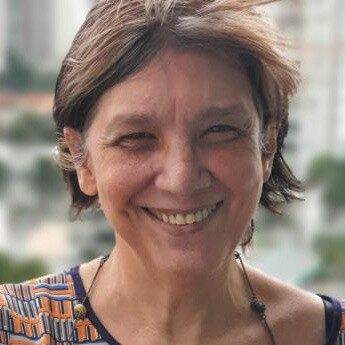We often hear voices raised in solidarity with the Palestinian people coming from organisations and individuals committed to ending Israeli apartheid in occupied Palestine. However, it is interesting that the first meeting of the Latin Palestinian Forum’s Board of Trustees pointed out divisive issues. Connecting solidarity for more effective action is a sincere proposal from the entities that carry the flag of a Free Palestine, but the means to achieve such a goal need reinforcement.
The forum was born out of the World League of Parliamentarians for Al-Quds (Jerusalem). It aims to add a Latin American perspective to strategic approaches to be taken. The first meeting of its trustees was held on 13 June. Forum members hailed it as an initiative playing a unifying role.
Participants in the meeting came from ten Latin American countries besides Mohammad Balaawi, the representative of the League for Al-Quds. Several parliamentarians – Julia Argentina Perie, a member of the Mercosur Parliament, and Cristina Heredia, a city Councilwoman, both from Argentina; Uruguayan Senator Sandra Lazo; and Venezuelan Congressman Júlio Chávez – emphasised the urgency of an intensive working journey in person.
Israeli attacks and an international background of unconditional support for the occupation have worsened the situation in Palestine for several years. The protracted juncture effectively led to the rise of the most extreme far-right government ever seen in Israel which has expressed, more than once, the desire to end the presence of the Palestinian people in their own land.
READ: Awareness of the Palestinian cause is growing at Brazilian universities
Even though this forum’s genesis is the experience of the League for Al-Quds, aiming at parliamentary action focused on the protection of Jerusalem, the composition of the Board of Trustees implies different connections in Latin America, even beyond politics and social activism to encompass culture, research and academia.
Moreover, the forum is part of the Latin American Forum of Popular Solidarity in Brazil, which prioritises contacts among Indigenous or diasporic communities which, in the 21st century, are still involved in the struggle against colonialism. These links include Indigenous and African-American struggles for land rights and anti-racism. The scope of this work is vast, but the first meeting has already established some priorities.
Diplomat and human rights advocate Paulo Sergio Pinheiro called for more action on university campuses, where solidarity is present but scattered. Equally visible — as was seen at the protest held at Unicamp against the arms trade with Israel — there is repression. In these circumstances, it is crucial to develop the means not only to unite in solidarity with the Palestinian people, but also to protect students from persecution.
Scholars also denounced censorship, as noted by University of Sao Paolo Professor Francirosy Campos Barbosa, who had an article on the Palestinian issue vetoed by the university. She attributed this to the Zionist academic lobby. She pointed out the creation of an Israel Section at the USP International Intercultural Centre (CII) in late 2021, while there is no Palestine Section. As a result, the forum may reinforce relations with scholars and students in Latin America interested in building common agendas. International meetings with regional governments are also an opportunity for raising awareness.
READ: Moving the Paraguay embassy to Jerusalem will be a wake-up call for Palestine
Beyond dialogue, the forum may make clear its cause and proposals. One demand brought to the meeting is to work towards removing the “two-state” alternative from the mainstream political discourse. Professor Arlene Clemesha of USP argued that accepting the “two-state” formula as a solution is no longer feasible, keeping the Palestinian people in limbo while Israel continues to encroach upon what remains of their land. It is, she insisted, no longer a credible option. However, every manifestation of solidarity from various authorities still includes support for this failed and already moribund “solution”, thus perpetuating the apartheid occupation.
As Professor Reginaldo Nasser stated, two important international bodies, Human Rights Watch (HRW) and Amnesty International have formally denounced Israeli apartheid. If Brazil respects the authority of these organisations, argued Nasser, it is only natural that the government should endorse their reports. Hence, the Latin Palestinian Forum has an important role in exerting pressure on regional authorities.
Venezuelan Julio Chávez, proud of his country’s resistance to US-imposed sanctions and maintaining solidarity ties with anti-imperialist communities, mentioned meetings of left-wing Latin American authorities, such as the Sao Paulo Forum, as an opportunity to amplify the Palestinian agenda. Its meeting held in Brasília between 29 June and 2 July, discussed the integration of Latin American and Caribbean countries and international relations in a moment of anti-hegemonic disputes. Chávez and other members of the Latin Palestinian Forum were expected to participate.
Mohamad El-Kadri, the head of the forum, said that it is necessary to intervene in the international scene to counter the hegemonic Western perspective, including the double standards in the response to the Ukraine war compared with Israeli military offensives against the Palestinians. As highlighted by Daud Abdullah, the International Director of MEMO, this hypocrisy repeats itself when the US and other partners condemn Iran’s nuclear programme while turning a blind eye to the nuclear programmes of strategic allies, including Israel. Civil society and organisations must play a predominant role in drawing attention to this, urged Abdullah.
The Palestinian issue lies at the heart of the struggle for another possible world in which the peoples of Latin America also get involved. The Latin Palestinian Forum is a much-welcome opportunity to make a difference by channelling efforts into solidarity between counter-hegemonic and anti-colonial struggles.
The views expressed in this article belong to the author and do not necessarily reflect the editorial policy of Middle East Monitor.


![Latin Palestinian Forum [Facebook]](https://i0.wp.com/www.middleeastmonitor.com/wp-content/uploads/2023/07/Latin-Palestinian-Forum-e1688387670515.jpeg?fit=1199%2C800&ssl=1)









